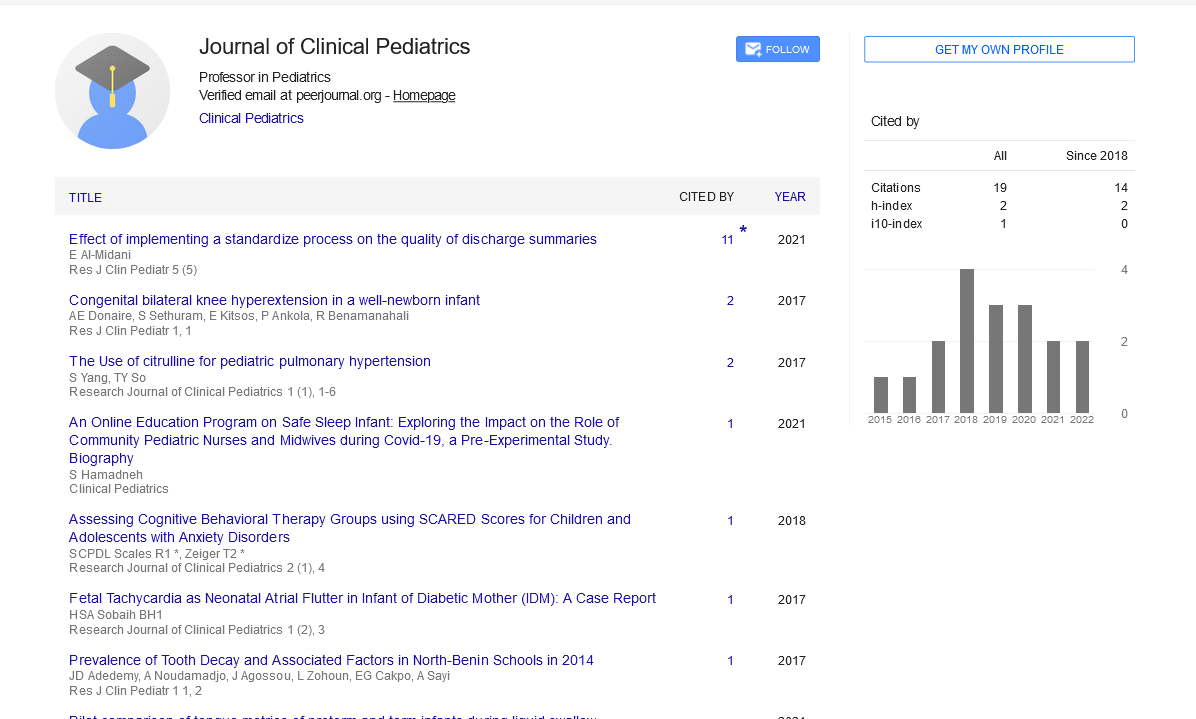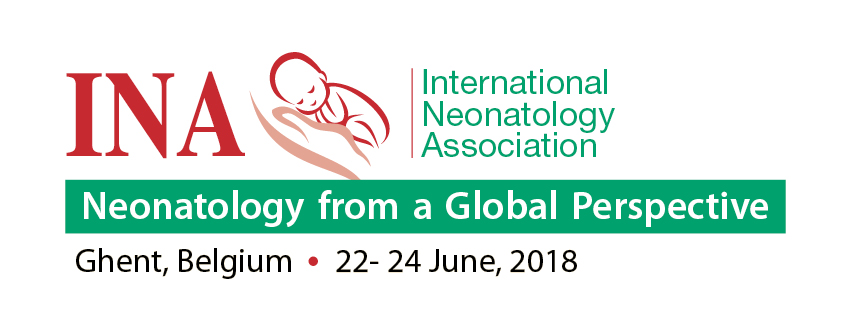Perspective, Res J Clin Pediatr Vol: 7 Issue: 4
An Overview on Pediatric Oncology: It's Diagnosis and Prevention Methods
Deborah Barbara*
1Department of Public Health, Emory University School of Medicine, Atlanta's, USA
*Corresponding Author: Deborah Barbara,
Department of Public Health, Emory
University School of Medicine, Atlanta's, USA
E-mail: barbara@deborah.arizona.edu
Received date: 27 November, 2023, Manuscript No. RJCP-24-128402;
Editor assigned date: 30 November, 2023, PreQC No. RJCP-24-128402 (PQ);
Reviewed date: 07 December, 2023, QC No. RJCP-24-128402;
Revised date: 21 December, 2023, Manuscript No. RJCP-24-128402 (R);
Published date: 28 December, 2023 DOI: 10.4172/rjcp.1000164
Citation: Barbara D (2023) An Overview on Pediatric Oncology: It's Diagnosis and Prevention Methods. Res J Clin Pediatr 7:4.
Description
Pediatric oncology is a specialized branch of medicine dedicated to diagnosing and treating cancer in children. It encompasses various aspects, including research, diagnosis, treatment, and long-term care, focusing on the unique needs of young patients and their families. Pediatric cancers are relatively rare compared to adult cancers, accounting for about 1% of all diagnosed cancers. However, they remain a leading cause of death in children, second only to accidents. The types of cancers that affect children often differ from those seen in adults, and they occur in various parts of the body.
Leukemias, brain tumors, lymphomas, and solid tumors like neuroblastoma, Wilms tumor, and osteosarcoma are some common types of childhood cancers. These cancers can originate from different tissues and have distinct characteristics compared to adult cancers. Diagnosing pediatric cancers requires a multidisciplinary approach. It involves a thorough physical examination, medical history review, imaging tests (X-rays, Magnetic Resonance Imaging (MRI), Computed Tomography (CT) scans), blood tests, biopsies, and sometimes bone marrow aspirations. Due to the specialized nature of pediatric cancers, the symptoms may vary widely and can often mimic other childhood illnesses, making diagnosis challenging.
The treatment of pediatric cancers typically involves a combination of therapies, including surgery, chemotherapy, radiation therapy, immunotherapy, targeted therapy, and stem cell transplantation. The specific treatment plan varies based on the type and stage of cancer, the child's age, overall health, and other factors. A major concern during treatment is minimizing the impact on a child's growing body while effectively combating cancer cells. Treating children with cancer poses unique challenges. Young patients may have different physiological responses to treatments compared to adults. Furthermore, the long-term effects of treatments such as chemotherapy and radiation can affect a child's growth, development, and future health. Emotional and psychological support for both the child and their family is important throughout the treatment process.
Ongoing research in pediatric oncology aims to improve treatment outcomes, minimize side effects, and develop targeted therapies with fewer long-term consequences. Collaborative efforts between researchers, clinicians, and pharmaceutical companies have led to significant advancements in understanding the biology of childhood cancers and developing more precise treatments. Survivorship care is an essential aspect of pediatric oncology. Children who survive cancer may face long-term health issues due to the treatments they received. Therefore, regular follow-up visits are necessary to monitor their health, screen for potential late effects, and provide necessary support for their physical and emotional well-being.
A cancer diagnosis can be emotionally challenging for children and their families. Pediatric oncology teams often include psychologists, social workers, and child life specialists who provide emotional support, counseling, and resources to help families cope with the stress and uncertainties associated with a cancer diagnosis. Advocacy groups and support organizations play a vital role in raising awareness, funding research, and providing resources and assistance to families navigating the challenges of pediatric cancer. These groups advocate for policies that prioritize pediatric cancer research and support legislation aimed at improving access to care and treatments. Pediatric oncology is a specialized field that requires a comprehensive, compassionate, and multidisciplinary approach to effectively diagnose, treat, and support children with cancer and their families. On-going research, advances in treatment modalities, and holistic care have improved outcomes, but continued efforts and support are important to further enhance the quality of life and survival rates for children affected by cancer.
 Spanish
Spanish  Chinese
Chinese  Russian
Russian  German
German  French
French  Japanese
Japanese  Portuguese
Portuguese  Hindi
Hindi 
